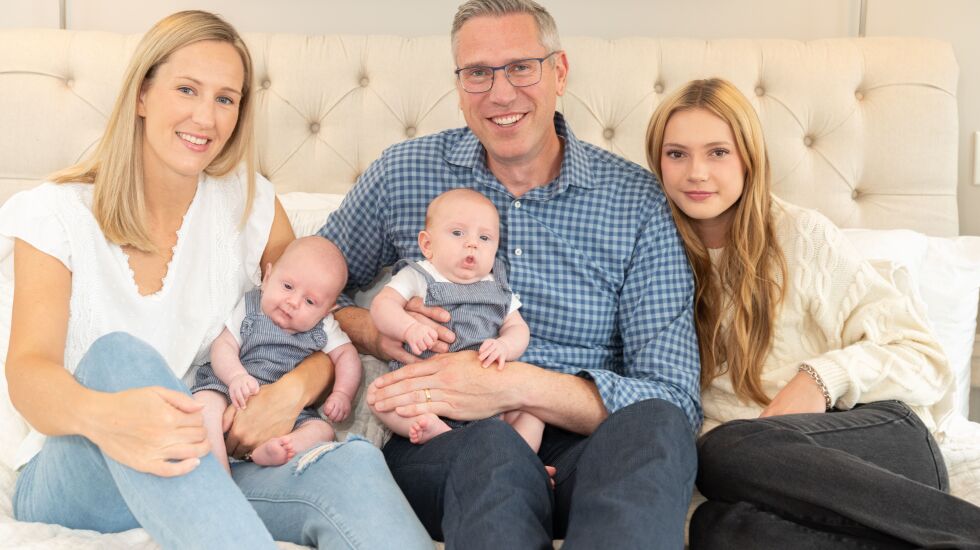
Like many people, my wife and I like to take stock of the things we are thankful for at Thanksgiving. This year, the top of our list is easy: We are thankful for the birth of our sons, Theo and Max. We don’t take their existence for granted.
Allow us to explain. Erica suffers from endometriosis, a condition that makes it difficult to conceive a child naturally. But in vitro fertilization made it possible for us to conceive, and we are very thankful for the doctors and nurses who helped us through that process.
Erica gave birth in June, and Theo had to fight for his life, spending nearly eight weeks in the neonatal intensive care unit at Northwestern Medicine Prentice Women’s Hospital. We are incredibly thankful for the doctors and nurses who helped pull Theo through a life-threatening scare.
We also are thankful the new speaker of the U.S. House, Louisiana Republican Mike Johnson, does not make the laws governing reproductive freedom in Illinois. If he did, our twin sons wouldn’t be here.
According to recent news reports, Johnson supports banning in vitro fertilization. He is a co-sponsor of the Life at Conception Act, a nationwide abortion ban that also would affect embryos created for IVF. In Illinois, some right-wing groups want to ban IVF. Because of these zealots, in January our governor and state lawmakers enacted a law protecting people’s decisions to use IVF to have children.
In the wake of the U.S. Supreme Court’s Dobbs decision last year, right-wing zealots in Tennessee immediately questioned the legality of IVF. In a conversation caught on tape, Stephen Billy, the vice president of state affairs for Susan B. Anthony Pro-Life America, told lawmakers they just needed to wait a little bit before going after fertility procedures.
The end of Roe triggered a flood of “personhood” bills in Republican states that define a fertilized egg or embryo as a legal human entity. In the process of IVF, the doctor collected eggs from Erica during four different rounds. After fertilization, we had two embryos. Only one was viable. According to these “personhood” laws, if these unviable collections of cells are considered people, doctors or their patients will be considered to have committed a crime by disposing of them.
Erica knew that giving birth was going to be a struggle. Post-Dobbs, she didn’t know it might be considered a crime.
If anyone thinks such laws will not affect many people, remember about one in five women in the U.S. with no prior births have trouble conceiving. This includes people like Erica who live with genetic conditions and women who chose to delay childbearing while pursuing careers.
We cringe when we hear some of these people shout, “Thanks for choosing life!” They get it right in calling it a choice. In our case, it was a choice that required medical help, not legislative prohibition. They want to deny families like ours the medical help they need.
We are very fortunate. Although the process of IVF took several years and was physically and mentally exhausting, that one embryo split and became Theo and Max. Many families dealing with infertility are not so lucky.
We have been told that conceiving a baby is a miracle. There, we agree. We have two sons despite only transferring one embryo. This miracle could only happen because we live in a state that gives women reproductive freedom. This is why government should not make health care decisions for women.
We are thankful to live in a state that allowed us the choice.
Michael Frerichs is the Illinois treasurer.
The Sun-Times welcomes letters to the editor and op-eds. See our guidelines.
The views and opinions expressed by contributors are their own and do not necessarily reflect those of the Chicago Sun-Times or any of its affiliates.







